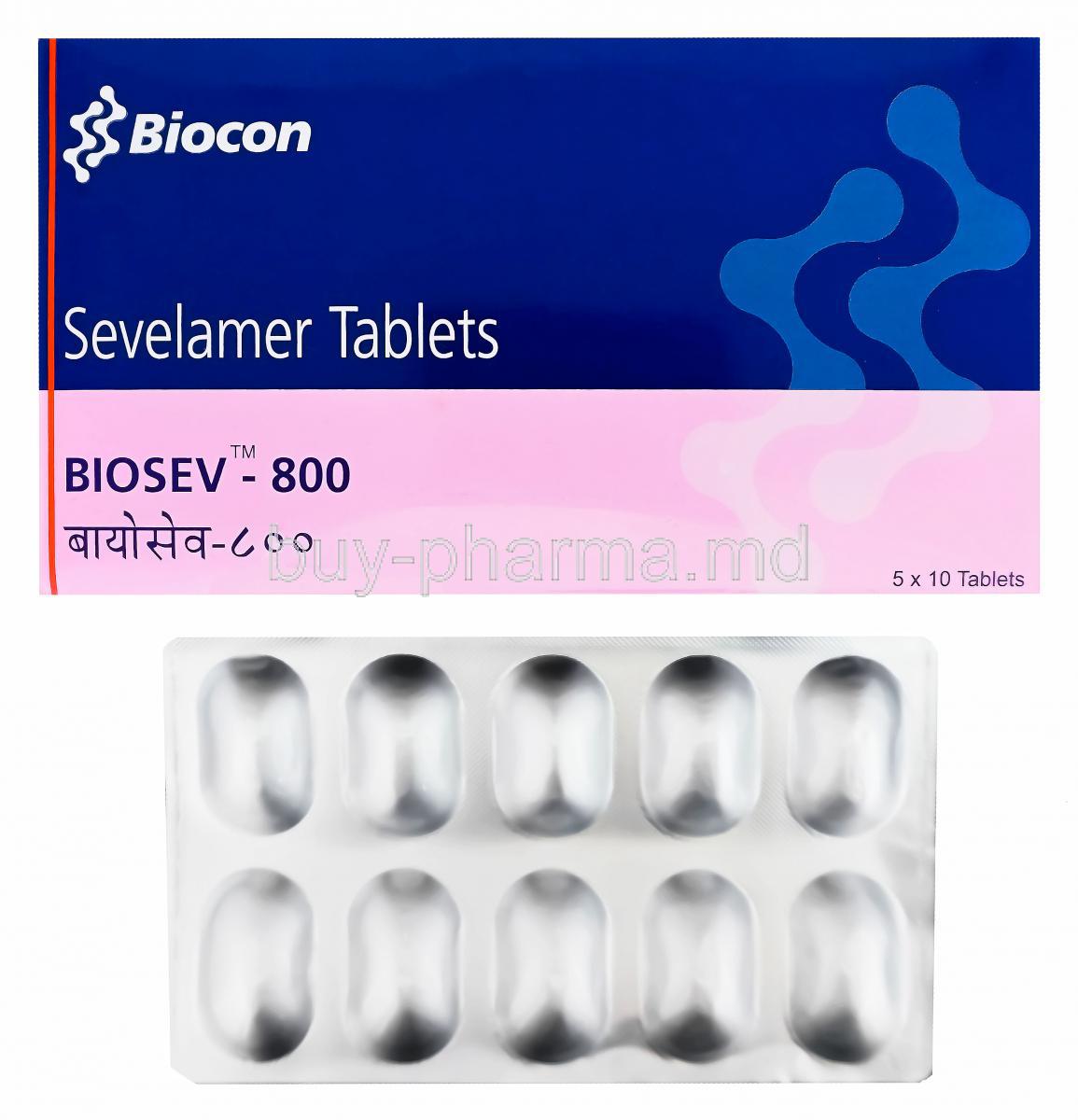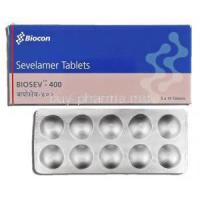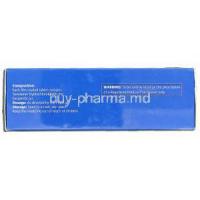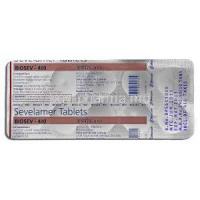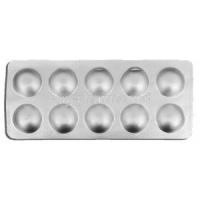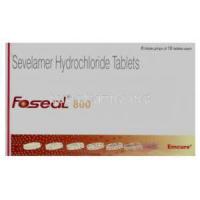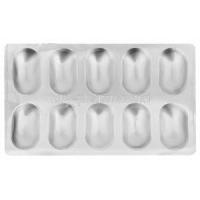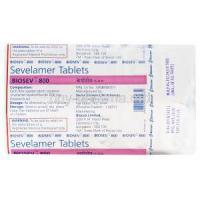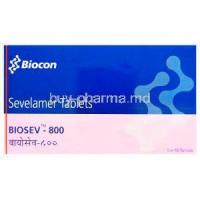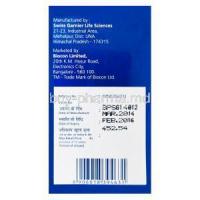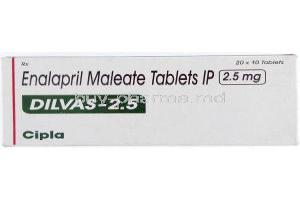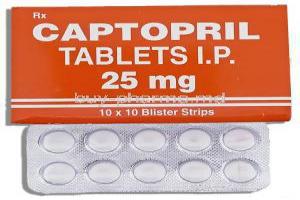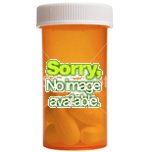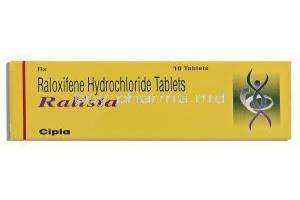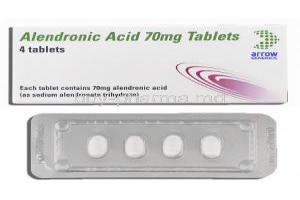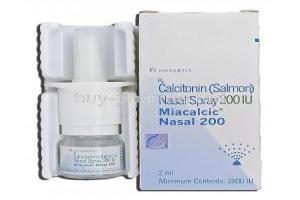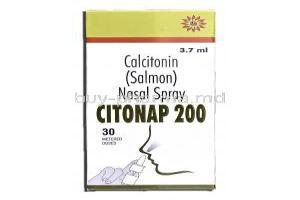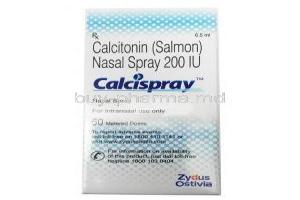Sevelamer Hydrochloride
- I. Introduction to Sevelamer Hydrochloride
- II. Composition of Sevelamer Hydrochloride
- III. Mechanism of Action: How Sevelamer Hydrochloride Works
- IV. Uses of Sevelamer Hydrochloride
- V. Off-Label Uses of Sevelamer Hydrochloride
- VI. Dosage and Administration
- VII. Side Effects of Sevelamer Hydrochloride
- VIII. Important Precautions When Using Sevelamer Hydrochloride
- IX. Drug Interactions
- X. Special Considerations in Administration
- XI. Handling and Storage
- XII. Overdose Management
- XII. Overdose Management (continued)
- XIII. Regulatory and Legal Considerations
- XIV. Future Perspectives
I. Introduction to Sevelamer Hydrochloride
Overview of Sevelamer Hydrochloride
Sevelamer Hydrochloride, a phosphate binder, is mainly used to manage high phosphate levels in people with chronic kidney disease (CKD). It is favored over calcium-based binders as it does not affect serum calcium levels in certain groups of patients.
Historical Development and Approval
The arrival of Sevelamer Hydrochloride represents an advancement in the field of nephrology treatment. Given the light by the FDA in the late 1990s, its debut offered a fresh perspective on controlling phosphate levels in individuals with kidney issues, greatly influencing how patients with chronic kidney disease are cared for.
II. Composition of Sevelamer Hydrochloride
Chemical Structure and Properties
Sevelamer Hydrochloride is a polymer structure that works by attaching to phosphates in the system and stopping them from being absorbed. The molecular design is tailored to capture phosphates without entering the bloodstream.
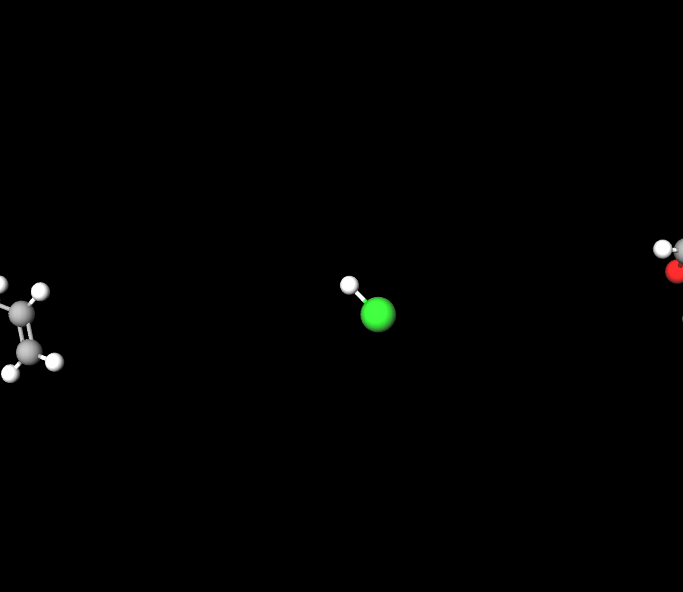
Formulations Available
- Tablets
- Powder sachets
III. Mechanism of Action: How Sevelamer Hydrochloride Works
Pharmacodynamics: Binding Phosphates
Sevelamer Hydrochloride is effective in therapy because it traps phosphates in the stomach and intestines. This stops phosphates from getting into the bloodstream, helping to keep phosphate levels low in patients with chronic kidney disease.
Impact on Cholesterol and Bile Acids
It's interesting that Sevelamer Hydrochloride also has the advantage of lowering cholesterol levels. It works by binding bile acids in the intestine, which helps clear out cholesterol effectively.
Sevelamer hydrochloride vs carbonate
Sevelamer carbonate has a range of uses compared to sevelamer hydrochloride. Sevelamer carbonate is approved for managing levels of phosphorus in adult patients with chronic kidney disease who are undergoing dialysis or not (hemodialysis and peritoneal dialysis), whereas sevelamer hydrochloride is specifically approved only for those undergoing dialysis.
IV. Uses of Sevelamer Hydrochloride
Primary Indications: Managing Hyperphosphatemia in CKD
Comparison with Other Phosphate Binders
In contrast to calcium-based binders, Sevelamer provides benefits like avoiding elevation of blood calcium levels, which is especially helpful for patients prone to vascular calcification.
V. Off-Label Uses of Sevelamer Hydrochloride
Exploring Non-approved Applications
In CKD, Sevelamer is mainly utilized for binding; however, researchers are exploring its impact on various medical conditions, such as its ability to potentially delay the advancement of renal disease.
Clinical Studies and Emerging Evidence
VI. Dosage and Administration
Dosage Guidelines Across Different Conditions
The dosage of Sevelamer Hydrochloride should be adjusted with caution based on the levels and individual requirements of the patient. Initial doses and modifications are determined by monitoring serum phosphate levels.
Administration Techniques and Recommendations
To get the most out of Sevelamer Hydrochloride it's essential to take it with meals to help it bind with phosphate effectively. The way you take the medication plays a role, in ensuring its effectiveness.
Sevelamer nursing considerations
Since sevelamer does not enter the bloodstream, it is unlikely to pose any risks to a breastfeeding infant. Renvela should not be used in children under the age of 6.
VII. Side Effects of Sevelamer Hydrochloride
Overview of Common and Rare Side Effects
Although most individuals tolerate it well, certain patients might encounter issues like nausea or constipation. Uncommon yet severe adverse effects comprise obstruction and intense allergic responses.
Managing Side Effects in Clinical Practice
To manage side effects well, it's important to educate patients about negative reactions, monitor them during treatment, and make changes to medication or therapy if necessary.
VIII. Important Precautions When Using Sevelamer Hydrochloride
Who Should Not Use It: Contraindications
Patients with bowel blockage, low phosphorus levels, or allergies to any ingredients in the formula, should not take Sevelamer Hydrochloride.
Situations Requiring Caution: Careful Administration
It is important to be extra careful when giving patients Sevelamer Hydrochloride who have trouble swallowing motility issues or have had surgeries to reduce the chances of gastrointestinal blockage.
IX. Drug Interactions
Potential Interaction with Common Medications
Sevelamer Hydrochlorides' ability to attach to substances in the stomach may disrupt the intake of frequently recommended drugs, such as thyroid hormone replacements, which may require spaced-out administration, and certain antibiotics, where dividing doses is suggested for optimal effectiveness.

Managing Interaction Risks
Healthcare professionals need to keep an eye on the levels of drugs and make changes to dosing timings to reduce the chances of interactions. It's important for patients to understand the significance of following a schedule that allows time between taking Sevelamer Hydrochloride and other medications.
Renvela and Sevelamer
Renagel and Renvela are variations of sevelamer. They both function as binders, have comparable side effects, and are administered in similar manners. However, they vary in their forms of dosages. Renvela is suitable for children as young as 6 years old and is less prone to causing metabolic acidosis.
X. Special Considerations in Administration
To Elderly Patients: Adjustments and Monitoring
Elderly individuals may need adjusted medication doses because their kidney function could decline. They might have other health issues. It's crucial to check phosphate levels and kidney function to prevent any complications.

During Pregnancy and Nursing: Safety Profile
Sevelamer Hydrochloride falls into FDA Pregnancy Category C, suggesting that although animal research indicates harm, there is a lack of comprehensive studies on pregnant women. The decision to use this drug during pregnancy and breastfeeding should be made carefully, weighing the benefits against the risks to the child or nursing infant.
Pediatric Use: Efficacy and Safety
The safety and efficacy of Sevelamer Hydrochloride in children have not been definitively proven. Its use in patients usually relies on careful interpretation of adult data and is strictly monitored by medical professionals.
XI. Handling and Storage
Proper Storage Conditions
To ensure its effectiveness, store Sevelamer Hydrochloride in a dry place away from light and moisture. Keep temperatures below 25°C (77°F).
Handling Precautions for Safety
When dealing with Sevelamer Hydrochloride, it's crucial to maintain the integrity of its packaging to prevent any contamination or deterioration. It's important for healthcare professionals and patients to understand the significance of not using the medication after its expiry date.
XII. Overdose Management
Symptoms of Overdose
An excessive intake of Sevelamer Hydrochloride usually leads to issues like:
- Intense constipation or blockage in the bowels
- Feeling nauseous and throwing up.
Immediate Actions and Treatment
In case of an overdose, it is crucial to seek medical help. The treatment involves actions like clearing the digestive system through lavage or giving laxatives, as well as monitoring and stabilizing electrolyte levels. Close monitoring and providing care are essential until the patient's condition improves.
XII. Overdose Management (continued)
It is crucial to continue monitoring the patient's health to prevent any long-term complications that may result from the overdose. In situations where issues like bowel obstruction are suspected, surgery might be necessary.
Keeping an eye on kidney function and hydration levels is also important to avoid any further kidney problems. Since Sevelamer Hydrochloride can bind to medications, it's recommended to monitor how well other drugs are being absorbed by the body after an overdose. Adjustments in medication dosages may be needed to maintain their effectiveness.
Educating patients about following prescribed doses can help prevent overdosing incidents. Doctors should make sure patients understand the risks of not managing dosages and emphasize the importance of regular checkups to assess drug effectiveness and safety.
XIII. Regulatory and Legal Considerations
Approval Status and Regulatory Guidelines
Sevelamer Hydrochloride has been given the light by the FDA and other regulatory agencies globally for treating hyperphosphatemia in individuals with chronic kidney disease. It's crucial for healthcare professionals to keep up to date on any updates, in approval and adhere to all prescribed labeling and information endorsed by regulatory authorities.
Legal Implications of Off-Label Use
Using medications for purposes not approved by the authorities can have benefits, but it also comes with legal implications. Doctors who prescribe Sevelamer Hydrochloride for off-label reasons should make sure they have an understanding of the scientific backing for such use and inform patients about its non-approved status while getting their consent. Keeping a record of these conversations is crucial to safeguard both the patient and the healthcare provider.
XIV. Future Perspectives
Advancements in Treatment Approaches
Ongoing research aims to enhance the effectiveness and safety of Sevelamer Hydrochloride. Scientists are looking into ways to deliver the medication and improve patient adherence while minimizing side effects. Furthermore, ongoing studies seek to explore the health benefits of Sevelamer in heart health and its potential role in protecting against artery hardening in patients with chronic kidney disease.
Impact of Emerging Research
Recent studies could potentially broaden the uses of Sevelamer Hydrochloride or its combination with treatments. Staying informed about these advancements is essential for healthcare professionals to enhance treatment plans and enhance the well being of individuals with kidney issues. Although Sevelamer Hydrochloride is a recognized drug for hyperphosphatemia management, continuous research and attentive patient care are vital, in maximizing its positive effects and reducing potential drawbacks.

